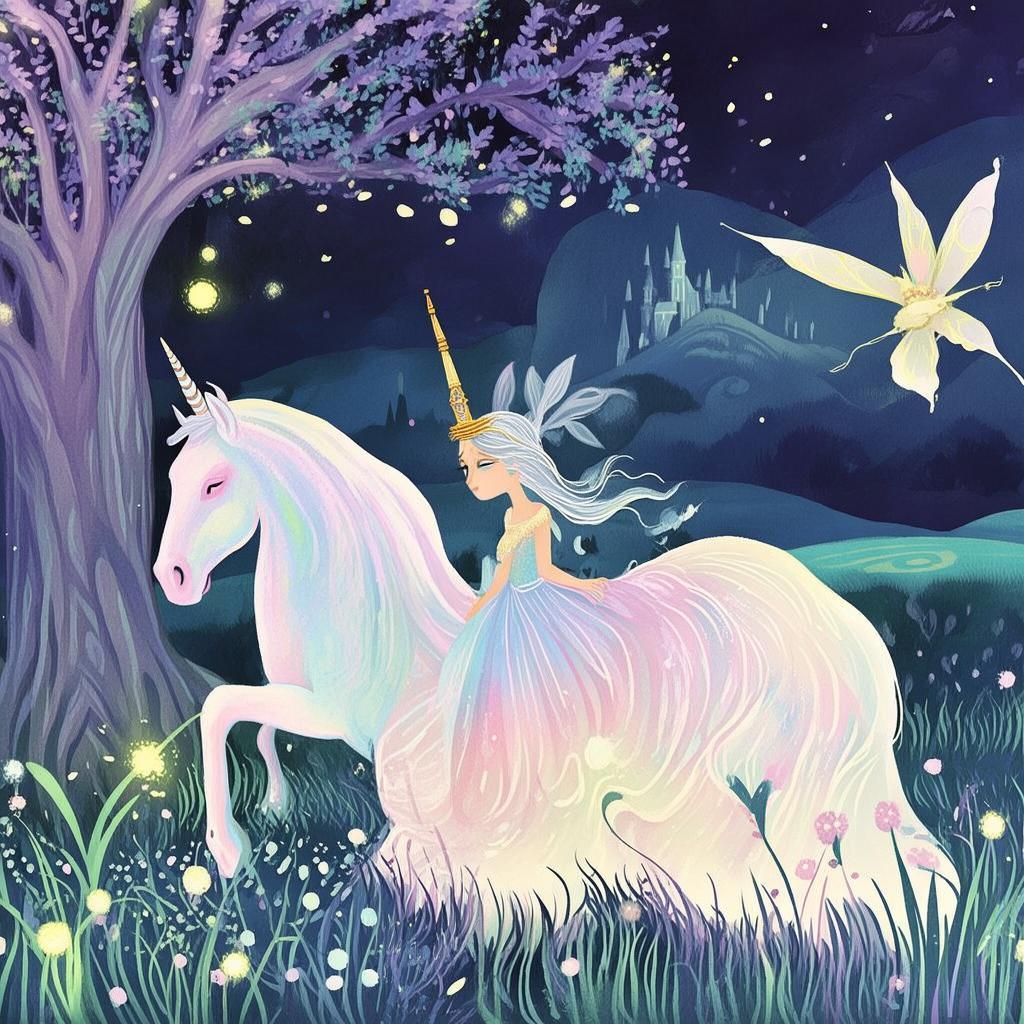The Bard's Chronological Lament
In the quaint village of Stratford-upon-Avon, amidst the scent of blooming roses and the murmur of the Avon River, there lived a man whose words could weave spells of enchantment. His name was William Shakespeare, the Bard of Avon, a man whose pen had the power to captivate the hearts of kings and commoners alike. But little did he know that his life was about to intertwine with the fabric of time itself.
One crisp autumn evening, as the leaves danced in the wind, Shakespeare found himself lost in thought, pondering the mysteries of the universe. As he gazed upon the stars, a sudden flash of light enveloped him, and he found himself transported to a different era, a time when the air was thick with the scent of parchment and the sound of lutes.
He landed in the bustling city of Florence, the Renaissance in full bloom. The streets were filled with artists, poets, and lovers, all chasing their dreams under the grandeur of the Medici family's patronage. Shakespeare, still bewildered by his sudden journey, wandered the cobblestone streets, his eyes wide with wonder.
In the heart of Florence, he encountered a woman whose beauty was as captivating as her spirit. Her name was Isabella, a young and ambitious singer with a voice that could rend the very fabric of time. They met under the moonlit sky, and in that moment, Shakespeare knew that his heart had found its truest companion.
Their love blossomed swiftly, as if the stars themselves had conspired to bring them together. They spent their days in the gardens of the Medici, their nights under the stars, sharing tales of their lives and dreams. Shakespeare found inspiration in Isabella's spirit, and she found solace in his words.
But as the days turned into weeks, Shakespeare realized that his presence in this time was not meant to last. The pull of his own time was strong, and he knew that he must return to his own era. The thought of leaving Isabella filled him with a pain that was almost physical.
Isabella, sensing the gravity of the situation, tried to comfort him. "You must go back to your time, William. Your words are needed there. But know this, my love, that our hearts will always be connected across the span of time."
With a heavy heart, Shakespeare prepared to leave. As he stood before Isabella, their eyes locked, filled with the depth of their love. "Promise me," she whispered, "that you will never forget me."
Shakespeare nodded, his voice thick with emotion. "I promise, Isabella. Until the end of time."
And with that, he was enveloped in another flash of light, returning to Stratford-upon-Avon. The village seemed unchanged, yet he knew that his heart had been forever altered.
Back in his own time, Shakespeare's pen flowed with a newfound passion. He wrote of love, of loss, of the pain of separation. But every word he wrote was tinged with the memory of Isabella, the woman who had captured his heart across the ages.

Years passed, and Shakespeare's plays became legendary. But he was never truly at peace. He often found himself gazing into the night sky, searching for the constellation that marked the place where his love had once been.
One night, as he sat beneath the stars, he felt a sudden presence beside him. He turned to see Isabella, her spirit manifesting before his eyes. "I have come to say goodbye, William," she said, her voice as clear as the night air.
Shakespeare reached out, his fingers grazing her ethereal form. "Why now, Isabella? Why after all these years?"
"I have been watching over you, my love," she replied. "I have seen your pain, and I have felt your joy. But now, it is time for me to return to my own time."
Shakespeare's eyes filled with tears. "I cannot let you go, Isabella. You are my heart, my soul."
Isabella smiled, her spirit growing faint. "We are forever bound, William. Our love transcends time. Remember me, and let our love live on in your words."
And with that, Isabella's spirit faded, leaving Shakespeare alone under the stars. But as he looked up, he saw the constellation that marked the place where she had once been, now forever etched in the night sky as a reminder of their love.
The Bard's Chronological Lament was a tale of love that transcended time, a story that would be told for generations. Shakespeare's pen had captured the essence of their love, and in doing so, had ensured that their story would never be forgotten.
✨ Original Statement ✨
All articles published on this website (including but not limited to text, images, videos, and other content) are original or authorized for reposting and are protected by relevant laws. Without the explicit written permission of this website, no individual or organization may copy, modify, repost, or use the content for commercial purposes.
If you need to quote or cooperate, please contact this site for authorization. We reserve the right to pursue legal responsibility for any unauthorized use.
Hereby declared.









